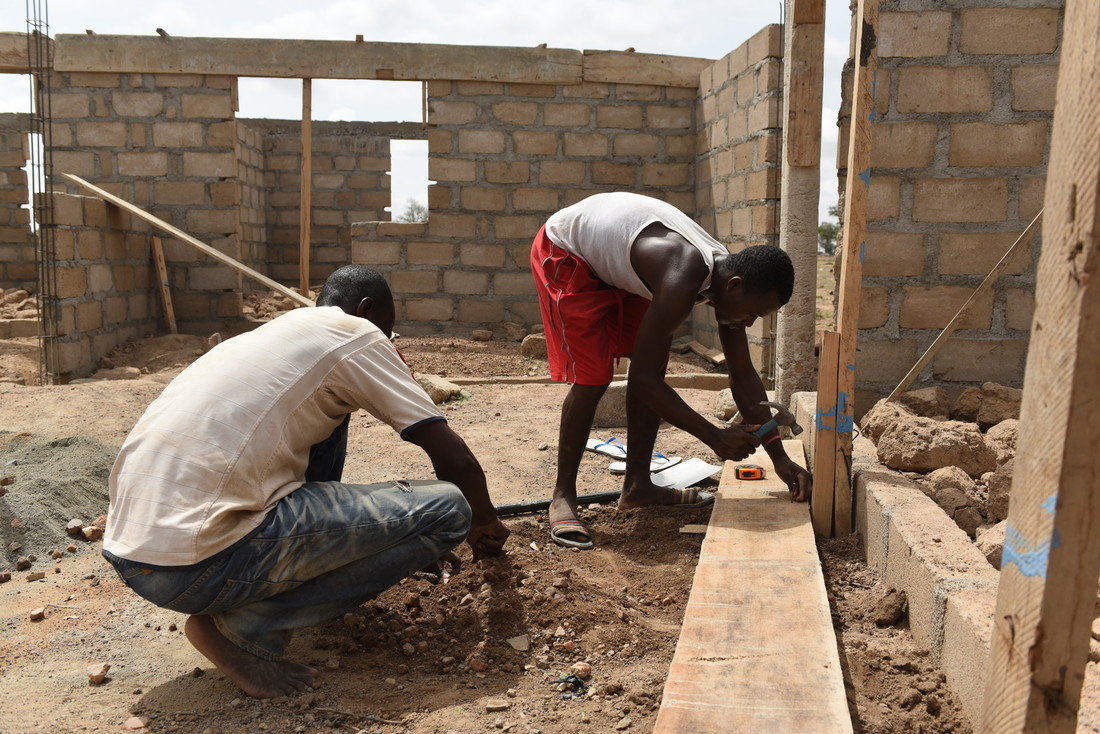
New Qualifications Help Young Ghanaians Access Jobs in Construction
Twenty-seven percent* of out-of-school youth in Ghana are unemployed. Yet the World Bank estimates that Ghana’s construction sector needs 60,000 more artisans and tradespeople – and that’s set to rise to 250,000 by 2020. So what’s stopping young people from making the most of job opportunities in construction?
It is often thought that the cost of buying tools or investing in training is the biggest barrier. But new research by Youth Forward – a five year partnership with The MasterCard Foundation – suggests that a lack of standardised qualifications for informal training is just as much an obstacle.
Formal training and standardised qualifications exist, but these are often with large enterprises or international firms that train far fewer young artisans, or have little interest in local job creation. As a result, informal training and apprenticeships with ‘master tradespeople’ are by far the most common ways for young people to access construction jobs in Ghana.
But at the end of an informal apprenticeship, young people have to go off and find work with other master tradespeople or contracting companies. And without a standardised or recognised qualification, they can’t signal to future employers their level of knowledge or skill.
The investment needed by young people to do a construction apprenticeship (that’s money for tools, time, and forgoing of other potential earning), is worth far less as a result. And with no guarantee of work at the end of it, young people are choosing jobs that offer immediate incomes – even if they pay less in the long run. Instead of investing in news skills to find employment, they look to social or informal professional networks to find unskilled work. This means that, ultimately, they’re stuck in lower skilled jobs, earning less over a lifetime.
Ghana’s National Vocational Training Institute (NVTI) has started to provide the missing link. It offers young people the opportunity to have their skills certified. Anyone can register to be examined in a number of artisanal professions, such as electrical or plumbing specialities.
The NVTI qualifications are slowly gaining recognition within Ghana’s construction sector, allowing young people to signal the value of their skills to other tradespeople and companies. Employers can then pay young people a premium for their qualifications, making them a viable investment for young people.
As the economy grows the demand for low-cost housing in Ghana will rise. And there will be many more job opportunities for young artisans and tradespeople. To help young people to make the most of these jobs, development programmes need to make sure that the NVTI qualifications are built into their projects.
*27% of out of school youth, aged 15-27 and without tertiary education. This statistic comes from the Ghana Living Standards Survey 6 (2012/2013).


Alexandra Löwe is Research Fellow for the Research and Policy in Development (RAPID) programme at the Overseas Development Institute.


